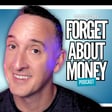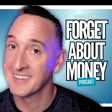
How This 20-Something Grad Student Mastered Money: Investing, House Hacking & More!
Subscribe and Watch on YouTube
🎙️ Today, we're joined by Alex, a young graduate student who's got his financial game on point!
💼💰 This episode is a must-watch for anyone navigating money in their twenties.
🌟 What's on the agenda:
House Hacking: David and Mindy break down the pros and cons of this popular strategy. Is it the key to financial freedom for young adults?
Paying Off Student Loans: To pay or not to pay? We explore the impact of student debt on financial planning.
Wanderlust vs Work: Balancing the dream of travel with career ambitions. Alex shares his plans.
Work-Life Harmony: How does a 20-something achieve it while building wealth?
🤔 Despite his young age, Alex seems to have it all figured out.
Mindy and David offer their feedback, but really, it looks like Alex just needs to keep doing what he's doing!
👥 Join the Conversation: Share your thoughts and experiences in the comments.
Are you in your twenties trying to make smart money moves? Let's discuss!
👉 Remember to like, share, and subscribe for more insightful episodes.
🔔 Turn on notifications for the latest tips and tricks on managing money smartly in your twenties.
Hashtags: #MoneyInYourTwenties #FinancialFreedom #InvestingYoung #HouseHacking #StudentLoanTips #WanderlustBudget #WorkLifeBalance #ForgetAboutMoneyPodcast #GradStudentFinance #SmartMoneyMoves #FinancialLiteracy #MillennialMoney
👥 Connect with Us: Follow us on Social Media! @forgetaboutmoney

